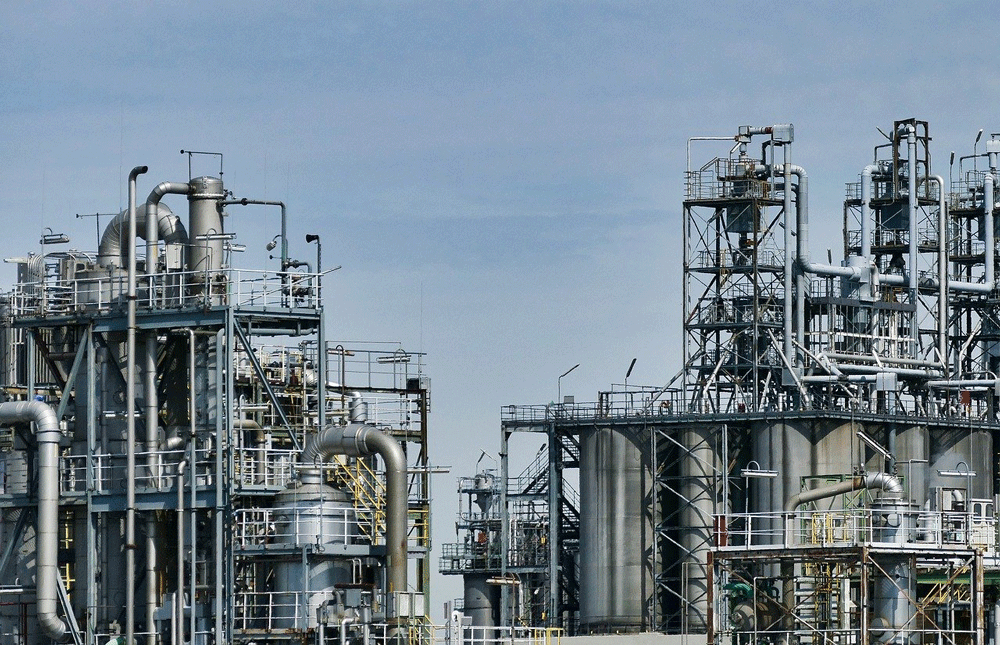Aramco charts a grounded downstream strategy

The state energy giant and its downstream partners favour bolt-on refining and petrochemicals capacity
Saudi Aramco is executing major plans to expand its refining and petrochemicals production capacity primarily through expanding the Saudi Aramco Total Refining & Petrochemicals Company’s (Satorp) refinery facility located in Jubail, in the kingdom’s Eastern Province. At the heart of this expansion drive is the Amiral petrochemicals complex, a $9bn greenfield project scheduled to come online by 2025.
 The planned Amiral petrochemicals project has recently taken centre stage in the kingdom, in part due to stalling progress on Aramco and Sabic’s crude oil-to-chemicals (COTC) project at Yanbu. Amid concerns over future petrochemicals demand, and given the technically complex nature of the Yanbu endeavour, there are concerns over both the project’s proposed $20-$25bn cost and its ultimate utility.
The planned Amiral petrochemicals project has recently taken centre stage in the kingdom, in part due to stalling progress on Aramco and Sabic’s crude oil-to-chemicals (COTC) project at Yanbu. Amid concerns over future petrochemicals demand, and given the technically complex nature of the Yanbu endeavour, there are concerns over both the project’s proposed $20-$25bn cost and its ultimate utility.
The Amiral scheme is a more straightforward play. It will feature a large mixed-feed cracker to process 50 per cent ethane and refinery off-gases, with the capacity to produce 1.5 million tonnes a year (t/y) of ethylene, 500,000 t/y of propylene and related derivative products.
The Aramco-Total Satorp joint venture refinery at Jubail, with its capacity of 440,000 barrels a day (b/d), will supply the bulk of the feedstock.
Front-end engineering and design (feed) work is currently being conducted by a 50:50 consortium of France’s TechnipFMC and Australia’s Worley, which has been appointed to undertake pre-feed, feed and project management consultancy (PMC) works.
Tapping external finance
Aramco and Total say they will invest $5bn in the Amiral petrochemicals project. Third-party investors will pump an additional $4bn into the scheme to set up speciality chemicals and other derivatives units within the complex, bringing the total cost of the development to $9bn.
As part of this $4bn third-party investment, UK chemicals manufacturer Ineos has committed $2bn to build three specialty chemicals units within the complex, all of which are in the feed stage currently.
Ineos will set up a 425,000-tonne acrylonitrile plant, which will use its patented technology and catalyst. It will be the first plant of its kind in the Middle East when it starts up in 2025.
Ineos also plans to build a 400,000-tonne linear alpha olefin (LAO) plant and an associated world-scale polyalphaolefin (PAO) facility. These two plants are also scheduled to begin production in 2025.
In December MEED reported that the Royal Commission for Jubail & Yanbu (RCJY), the government authority in charge of industrial clusters in the two cities, is in talks with potential investors who have expressed interest in setting up facilities within the Amiral petrochemicals derivatives complex.
It is understood that Satorp is working closely with RCJY to secure the remaining $2bn investment from third-party investors soon, so that the megaproject can progress on schedule.
The Amiral project forms part of approximately $18bn-worth of estimated downstream projects in the pre-execution phase in Saudi Arabia, according to regional projects tracker MEED Projects.
Project pipeline
Another downstream project, currently in the feed stage, is the $3.5bn ‘Bottom of the Barrel’ project planned at Rabigh in Mecca Province by PetroRabigh, the joint venture of Aramco and Japan’s Sumitomo Chemicals.
This project will convert oil residue streams from the crude distillation process into more profitable products, creating more value from existing refining operations.
 The main scope of work on the project covers provision of a 75,000 b/d refinery, and building of hydrocracker, diesel desulphurisation and sulphur recovery units.
The main scope of work on the project covers provision of a 75,000 b/d refinery, and building of hydrocracker, diesel desulphurisation and sulphur recovery units.
US engineering firm Jacobs is carrying out the feed and PMC works on the project, while the main engineering, procurement and construction (EPC) tender is expected to be issued in the first half of this year.
Separately, privately-owned Advanced Petrochemical Company is working on plans to build a propane dehydrogenation (PDH) and polypropylene (PP) complex in Jubail.
The estimated $2bn project is important to Saudi Arabia as it aims to produce PP grades that are currently imported into the kingdom for the automotive industry and other sectors. Upon completion in 2024, the project is set to produce 750,000 t/y each of PDH and PP compounds.
Capacity coming online
There are downstream projects worth $10.5bn currently under execution in the kingdom. Most of these are set to be completed and come online this year.
Chinese petrochemicals firm Pan-Asia is moving ahead with EPC works on phase 1 of its Petrochemical and Chemical Fibre integrated project, worth about $1.2bn. Phase 1 is the first of three phases in a combined $3.8bn scheme Pan-Asian has undertaken to build at Jizan.
The remaining packages of Saudi Aramco’s $16bn-plus Jizan refinery project are also in the advanced stage of execution, with EPC works on all of them set to be completed by the last quarter of 2020.
When completed, the project will have the capacity to process 400,000 b/d of crude. Associated infrastructure development at Jizan Economic City will meanwhile ensure that the refinery complex has ready access to the port infrastructure necessary to ship its output to customers worldwide.
Aramco’s $3.7bn Ras Tanura refinery clean fuel project is also nearing completion, with the entire project expected to be operational by the end of June. Packages 1 and 2, the two main EPC packages of the project, worth a combined $1.8bn, are ongoing. Two other packages have already been completed.
Domestic refining and petrochemicals projects hold the key to Saudi Aramco achieving its goal of attaining a refining capacity of 8-10 million b/d, and a petrochemicals output capacity of 34 million t/y by 2030, within its global business portfolio.


